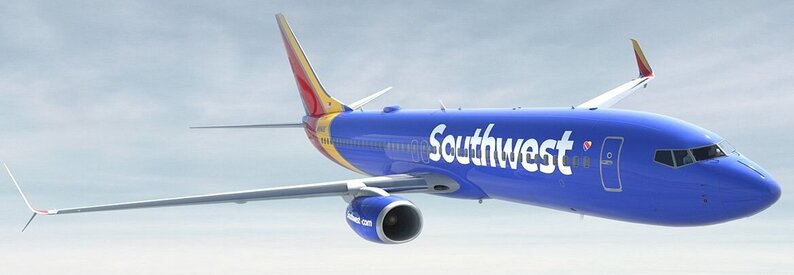Southwest Cuts Capacity, Pulls Earnings Guidance

Southwest Airlines announced it will scale back its flying schedule in the second half of 2025 and has withdrawn its full-year earnings guidance for both 2025 and 2026, citing “macroeconomic uncertainty” that has made forecasting all but impossible. In a securities filing, the carrier said unit revenue in the second quarter is expected to be flat to down as much as four percent year-over-year, and it will not reaffirm its previous EBIT outlook for the next two years.
The capacity reduction follows similar moves by Delta Air Lines and United Airlines, as all three carriers confront softer-than-expected domestic bookings. United described the U.S. economy as “impossible” to predict when it issued two forecasts, while Delta pulled its own full-year guidance earlier this month. Southwest, which has long eschewed assigned seating and baggage fees, is under intense pressure to boost revenue amid rising costs and evolving traveler preferences.
In the first quarter, Southwest posted a net loss of $149 million, an improvement from a $231 million loss a year earlier. Revenue of $6.43 billion beat analysts’ consensus target of $6.40 billion, and adjusted loss per share of 13 cents came in better than the 18-cent loss Wall Street anticipated, according to LSEG data. CEO Bob Jordan noted that “recently rolled out initiatives” have shown positive results, a likely reference to Southwest’s major overhaul of its half-century-old business model.
Over the past year, Southwest has broadened its distribution channels, listing fares on third-party sites such as Expedia to capture more leisure traffic. It has also introduced assigned-seat options and a basic economy fare class, departing from its traditional open-seating approach. Next month, the airline will begin charging many travelers to check their first two bags, ending a signature benefit that helped Southwest stand out in a crowded market.
These moves were demanded by Elliott Investment Management, which accumulated a stake in Southwest and secured board seats in 2024. The activist hedge fund has pressed the carrier to lift revenue through new ancillary fees and expanded global partnerships to compete more effectively with rivals that offer premium cabins, airport lounges and robust international networks.
Macroeconomic headwinds have landed unevenly across the industry. High inflation and fears of a recession have turned consumers cautious, weighing on domestic leisure travel. At the same time, longer-haul routes and premium-cabin bookings have held up better, according to executives at Delta and United. Southwest, which traditionally sells a single economy fare, has begun exploring partnerships and co-branded credit cards to capture more premium revenue.
On its upcoming quarterly conference call Thursday at 12:30 p.m. ET, Southwest executives are expected to face tough questions on just how deeply the carrier will trim capacity and how it plans to stabilize revenue. Investors will seek clarity on the timing and extent of new fees, the pace of seat assignment roll-outs, and any plans to resume earnings guidance once economic trends become more visible.
As the second-quarter unit revenue outlook flips negative, Southwest’s decision to pull its full-year guidance underscores the challenges facing U.S. airlines. After years of pandemic-era setbacks and a strong consumer rebound, airlines now grapple with cost inflation, uneven demand and the specter of trade-war fallout. For Southwest, the coming months will test the resilience of its retooled business model and the effectiveness of its new revenue streams against a backdrop of continued macroeconomic uncertainty.
Related News : https://airguide.info/?s=Southwest
Sources: AirGuide Business airguide.info, bing.com, cnbc.com
